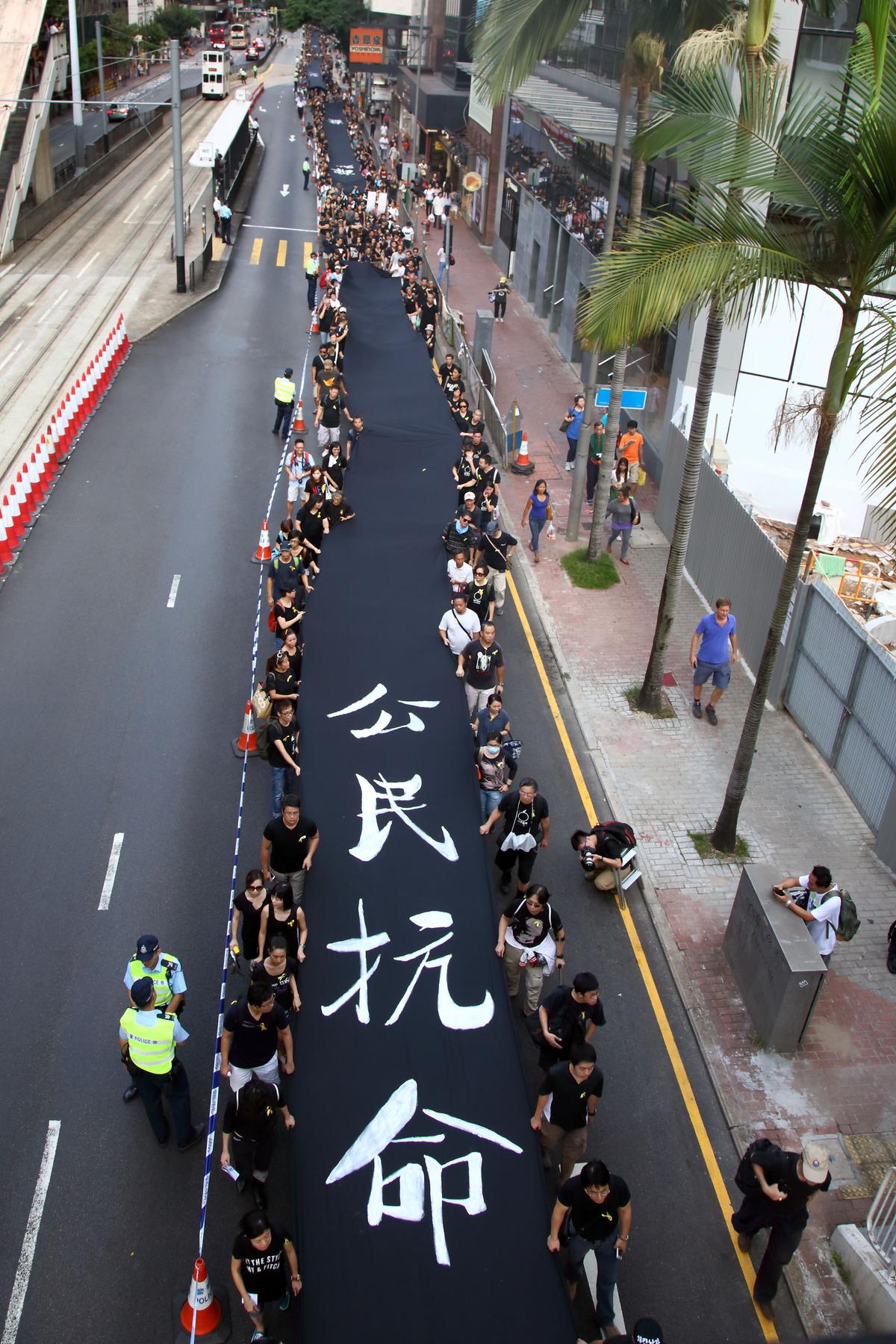HONG KONG—On Sunday 4,000 individuals wearing black shirts with yellow ribbons on the chest marched in what was billed by organizers as a “Black-Cloth March.”
The march was held to support the Occupy Central civil disobedience movement. The black, according to Occupy Central organizer Benny Tai, “represents our indignation.” The yellow ribbons represent the Hong Kong people’s demand for universal suffrage.
The marchers carried nine large, black cloth banners, each 50 meters (approximately 164 feet) in length. The banners bore slogans such as “civil disobedience” and “government dishonesty.”

Protesters in black shirts hold a black banner that says "civil disobedience" in calling for universal suffrage in Hong Kong, on Sept. 14, 2014. 4000 supporters of Hong Kong's Occupy Central movement participated in the Black-Cloth March. Pan Zaishu/Epoch Times




